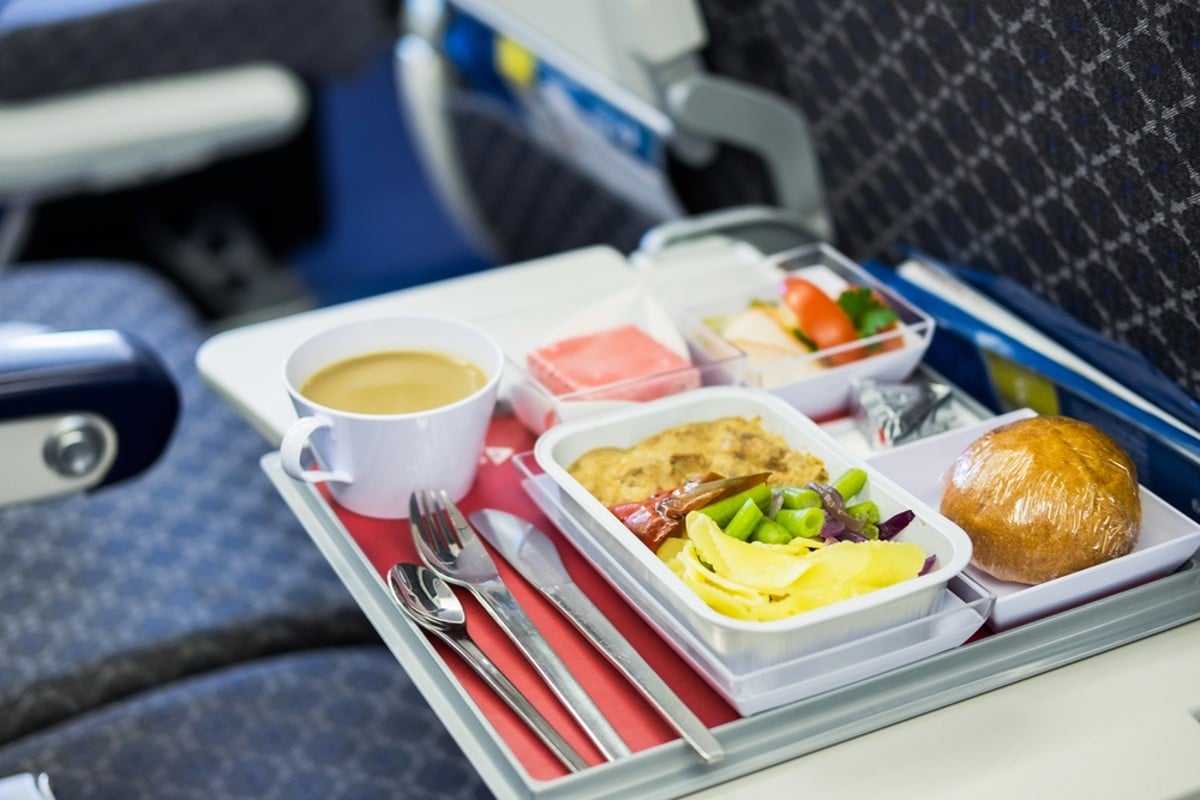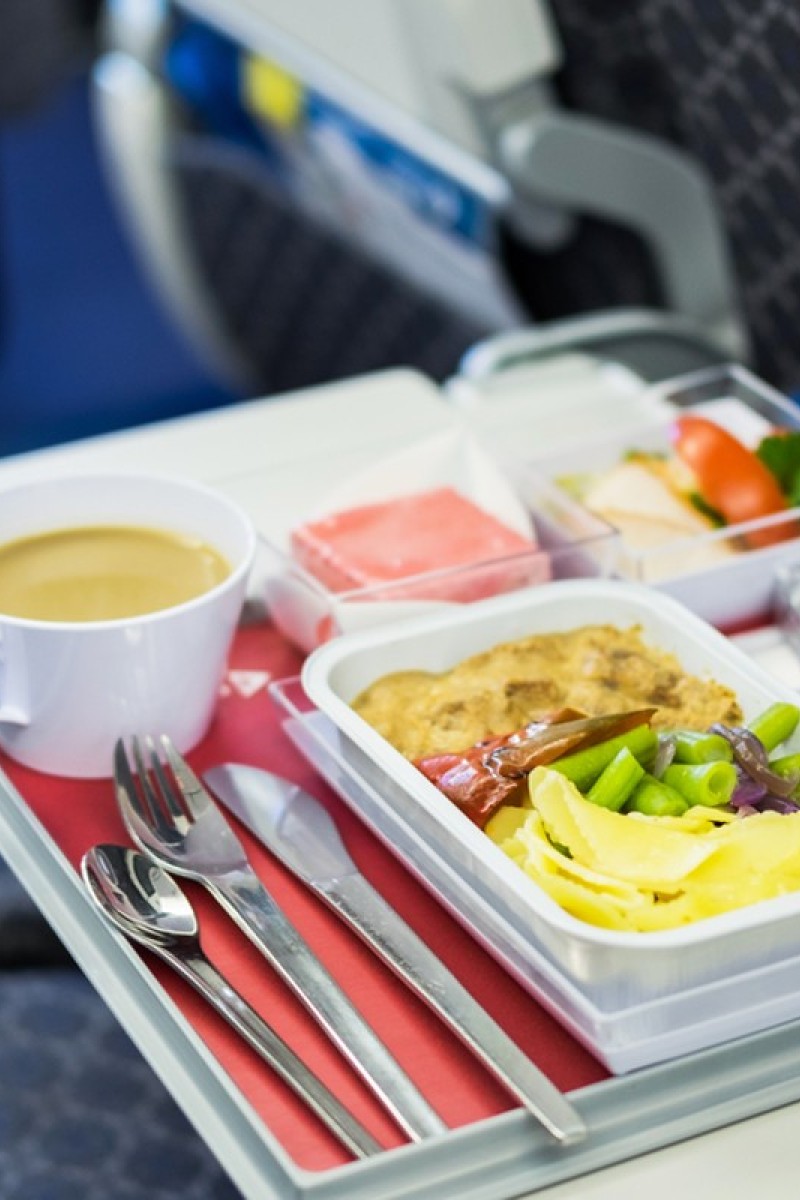 Here are some interesting facts about aeroplane food that you might not have known.
Here are some interesting facts about aeroplane food that you might not have known.Some of us love it, and some of us hate it – but more thought goes into the food you’re served on a plane than you’d think.
We spoke to Colin Law, an assistant professor and associate director of airline business management at Stamford International University, about the trays of nibbles you’re served on a flight. You’ll never look at in-flight food the same way again.
Thought goes into every item
All meals are prepared with boneless meat to avoid the risk of choking. That’s why you’re more likely to have chicken strips and baked chicken breast, not Buffalo wings. Recently, some airlines have stopped serving nuts and food containing nuts, for the benefit of those with nut allergies.
How to prepare and cook food safely...so you don't accidentally food poison yourself!
Meals are prepared on the ground
Food used to be cooked in the air in the 50s and 60s. Many flights had dedicated chefs on board to make them fresh. Today, they are prepared on the ground, usually a day in advance. Once ready, the pre-cooked meals are sent to a blasting chiller. This process cools the food down and stops it from going bad.
Not all meals are ready to eat, though. Meats are often cooked partially, and then finished off in the plane’s convention ovens. They are only loaded onto the plane one to two hours before it takes off. When there are delays, these pre-cooked meals are thrown away and another batch is prepared.
Wonky taste buds
Changes in humidity and low air pressure during flights can dull our taste buds for sweet and salty food. This means a slice of chocolate cake tastes more plain at 10,668 metres above ground than it does when you’re pigging out with your mates in a cafe. As such, airlines meals are usually packed full of salt, seasoning, and spices.
Also, our unami (our fifth savoury taste sense which picks up the flavour in soy sauce, tomatoes, and cured meats) is not affected by flying. That’s why tomato-based foods are often served on flights, and why tomato juice tastes better in the air.
Airline fast-food
In-flights meals are not just restricted to pastas, rice, and noodles. In the early 90s, United Airlines served McDonald’s Happy Meals on board. The meal included cheeseburger and cookies, although French fries weren’t served because they turn soggy when reheated.
This has been discontinued but other airlines have caught on the fast-food trend. Japan Airlines has started serving Mos Burger and KFC, and Icelandair offers miniature hamburgers from the country’s famous fast food chain The Hamburger Truly. We’d love a Filet-O-Fish or two ourselves!
The ultimate foodie's guide to Macau for the best street food and fast eats
Expensive special meals
Most major airlines serve around 25 types of special meals, including diabetic meals, low-salt meals, vegetarian meals, and baby meals. Many of these must be reserved up to 48 hours in advance.
The most expensive to order are kosher meals – food satisfying the requirements of Jewish law. They cost twice as much as a regular meal because they can only be prepared by specialised airline catering companies, and there are only a few kitchens around the world certified to do so.
Airlines don’t pass on the extra cost of preparing kosher meals to passengers, so you get more value for money by ordering this.
Bonus: Co-pilots have different meals!
While catering companies follow strict food safety guidelines, co-pilots on the same flight are given different meals. This is to make sure both pilots don’t get sick if one of them gets food poisoning!

